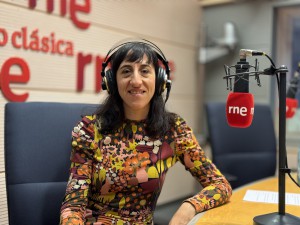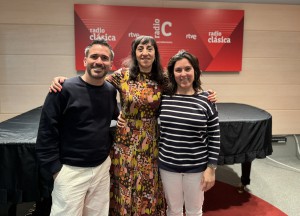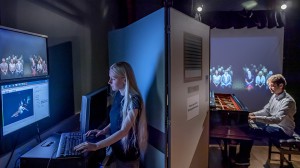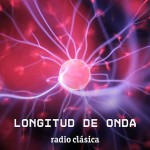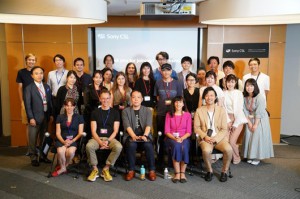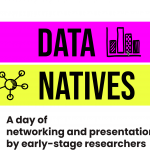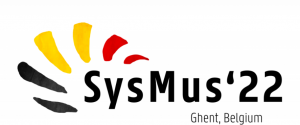- Maria is part of an international collaboration network funded by the Japan Science and Technology Agency (JST) ASPIRE programme, which brings together leading groups across Japan, Europe, North America, and Oceania to develop a unified neurocomputational framework for extracting, transferring, and enhancing complex human skills through AI-driven, robotic, and neuroscience-informed approaches.
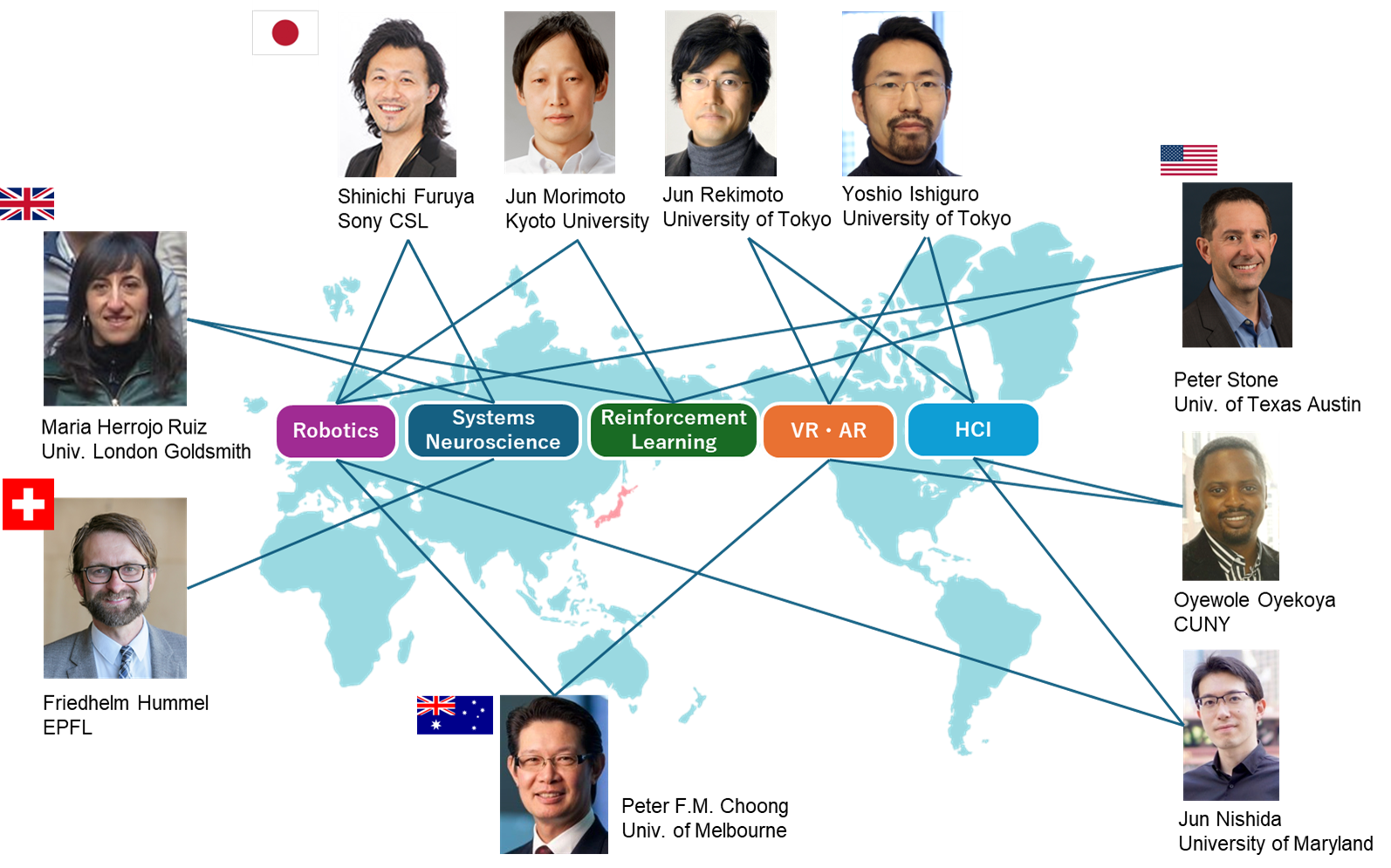
- Maria was a panellist at the all-women interdisciplinary panel Uncertainty & Creativity: Ordered Chaos on 13th of January at 180 House, organised by Kinda Studios.
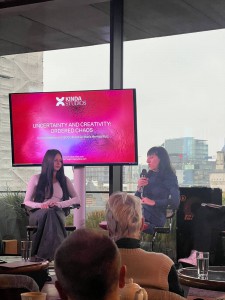

- In autumn 2025, we showcased our research at different conferences, with Maria giving talks at the Advances in Motor Learning II conference (Birmingham), MEG Nord Conference (Aarhus, Denmark), as well as giving talks at different universities, such as the Cognitive Seminar Series at the University At Albany, SUNY (New York, USA).
- In spring-summer 2025, we’re presenting our research at different conferences, with Maria giving talks at the Neural Control of Movement meeting (Panama), Psychology at the Brain Conference (Würzburg, Germany), and lab members presenting at the Computational Psychiatry conference in Tübingen (Germany) and Sensorimotor UK (Oxford, UK).
- Maria is also contributing to the SPM EEG/MEG Course at UCL this year, with a lecture on Convolution GLM.
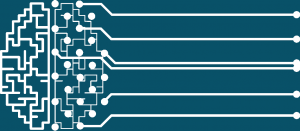
- In September 2024, Andrea Erazo Hidalgo joined the lab as a new PhD student funded by the ESRC – SeNSS Doctoral Training Centre. In collaboration with Dr. Shinichi Furuya at Sony CSL Tokyo and Dr. Carsten Allefeld at St George’s, University of London, this 3.5-year project will integrate approaches from performance science, neuroscience, and computational psychiatry to investigate music performance anxiety.
- In April 2024, Maria presented new research on beat perception and synchronisation in macaques, by Hugo Merchant’s lab, during her visit to the studios of the Spanish Radio and Television Corporation (Radio Clásica – RTVE.es). The interview was conducted for the programme Wavelength (Longitud de Onda), with which Maria has been a long-term collaborator. You can listen to the podcast here.
- In February 2024, we facilitated an exchange between students of the MSc in Music, Mind and Brain at Goldsmiths and students of the MSc in Performance Science at the Royal College of Music. We visited the Royal College of Music and their new Performance Laboratory to discuss joint projects. To enhance students’ research on performance and performance anxiety, Maria delivered a workshop on analysing physiological signals using Python. The aim was to equip students with the skills to conduct their own analyses of physiological signals during performance without needing to write code from scratch. We engaged in a productive discussion about the caveats of each method.
- In January 2024, Maria revisited the studios of the Spanish Radio and Television Corporation (Radio Clásica – RTVE.es) to discuss her lab’s latest findings on the influence of pharmacological aids on musicians’ performance. The interview was conducted for the programme Wavelength (Longitud de Onda), with which Maria has been a long-term collaborator. You can listen to the podcast here.
- In 2023, we showcased our lab’s research at conferences and symposia in Berlin, Madrid, Aarhus, London, Nijmegen and Tokyo. It was an excellent opportunity to reconnect with colleagues and share our latest findings.

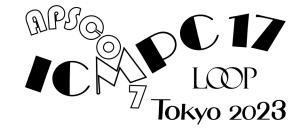
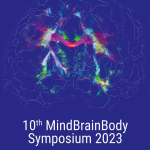
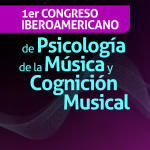
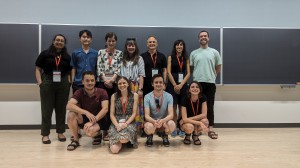
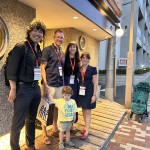 In addition to those exchanges, we participated in the Musical Dynaformics Workshop organised by the Director of Research at Sony Computer Science Laboratory (Sony CSL) in Tokyo, Dr. Shinichi Furuya. Here, you can see some of the participants and speakers, including Maria Herrojo Ruiz. Maria was fortunate to spend a couple of weeks in Tokyo with the support of Sony CSL, working on a new collaborative project investigating learning biases in skilled musicians.
In addition to those exchanges, we participated in the Musical Dynaformics Workshop organised by the Director of Research at Sony Computer Science Laboratory (Sony CSL) in Tokyo, Dr. Shinichi Furuya. Here, you can see some of the participants and speakers, including Maria Herrojo Ruiz. Maria was fortunate to spend a couple of weeks in Tokyo with the support of Sony CSL, working on a new collaborative project investigating learning biases in skilled musicians.
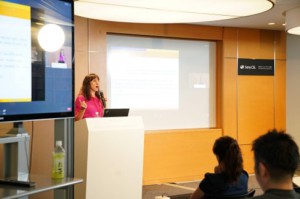
- In December 2022, Maria was invited to the studios of the Spanish Radio and Television Corporation (Radio Clásica – RTVE.es) to discuss her research on learning biases in musicians and present the labs’ latest findings. The interview was conducted for the programme Wavelength (Longitud de Onda), of which Maria has been a long-term collaborator. During the interview, she also talked about her upcoming project, “Understanding Performance Anxiety”. Here you can listen to the podcast.
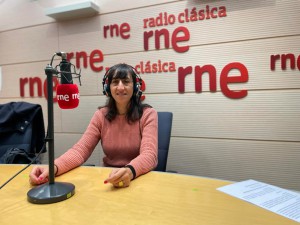 One of the pleasures of presenting at the programme Longitud de Onda, in addition to talking to the presenters Yolanda Criado and Fernando Blazquez, is to choose musical excerpts for the audience. Maria chose, among other things, some pieces by star American composer Caroline Shaw.
One of the pleasures of presenting at the programme Longitud de Onda, in addition to talking to the presenters Yolanda Criado and Fernando Blazquez, is to choose musical excerpts for the audience. Maria chose, among other things, some pieces by star American composer Caroline Shaw. - Our project “Understanding Performance Anxiety” has been funded by the Strategic Research Fund at Goldsmiths until July 2023. In collaboration with KCL, the Royal College of Music, University of Birmingham and UCL, we will use behavioural, neuroscientific and computational approaches to understand learning biases in musicians and the effects of pharmacological aids on musical performance.
Stay tuned!

- We have started a new collaboration with video game company Square Enix (UK). In this collaboration, which also includes Dr Peter Holland at Goldsmiths, we will use neuroscientific methods to understand video game performance and user engagement. Stay tuned!
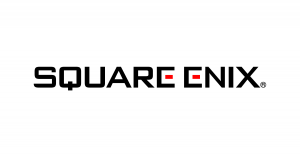
- Some of the students in the lab are presenting their work this spring and summer at different conferences, such as SysMus22 (Ghent), Data Natives (London), or Biomag 2022 (Birmingham).
- We will be presenting some of our work in December 2021 at the UK-Russian-French Symposium on Computational Psychiatry organised by Vasilisa Skvortsova at the Max Planck UCL Centre for Computational Psychiatry.
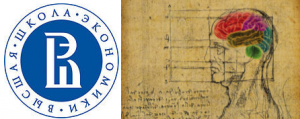 See details here
See details here
- Maria is one of the investigators involved in a new project on anxiety and neurofeedback led by Dr. Carmen Vidaurre, from the Universidad Pública de Navarra. This project is funded by the Spanish Ministry for Science and Innovation during 2021-2024.

- Maria will be supervising a new PhD project on Brain-Computer interfaces, funded by our external industry partner BrainControl and LiquidWeb Srl during 2021-2024. The project will be co-supervised by Dr. David Landi at BrainControl.
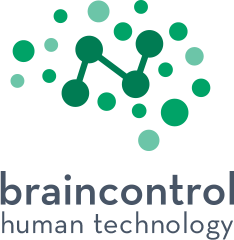
- During the 2020-2021 phase of the Covid-19 pandemic this website was not updated. Like most activities, conferences and talks were postponed or cancelled. But we are back! During 2021 we’ve given several talks at conferences and institutions and continued our collaboration with the Spanish Radio and Television Corporation.
We’re only announcing some relevant news for June 2021:
Maria is happy to go back to the Neurosciences and Music VII conference, which will take place online / in Aarhus during 18-21 June 2021. She is presenting a symposium with colleagues Shinichi Furuya, Peter Pfordrescher and Giacomo Novembre. Before the conference she will also be giving a lecture during the Aarhus Summer School in Music Neuroscience. Come join us!

- … Covid-19 …
- We will be presenting part of our work in a Minisymposium on Beta Oscillations at the meeting of the Society for Neuroscience (SFN 2019) in October in Chicago.
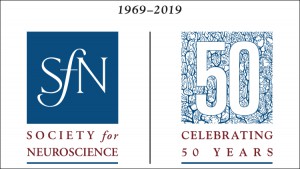
- See our contributions to some recent BBC Radio Podcasts, where we talk about electroencephalography: BBC Business Daily: Can technology read minds? (06/09/19) and music: BBC, David Baddiel, “My trouble with classical music” and “What happens to our brains when we hear music we hate?” (2019).
- Maria was invited by her colleague Shinichi Furuya (Computer Science Laboratory) to give a keynote lecture at the IEEE VR 2019 Workshop on Human Augmentation and Its Applications that took take place in March in Osaka (Japan).
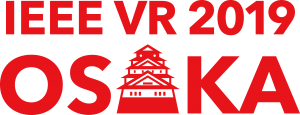 Here together with the organisers and other speakers, while Maria tries an amazing exoskeleton developed at Sony CSL!
Here together with the organisers and other speakers, while Maria tries an amazing exoskeleton developed at Sony CSL!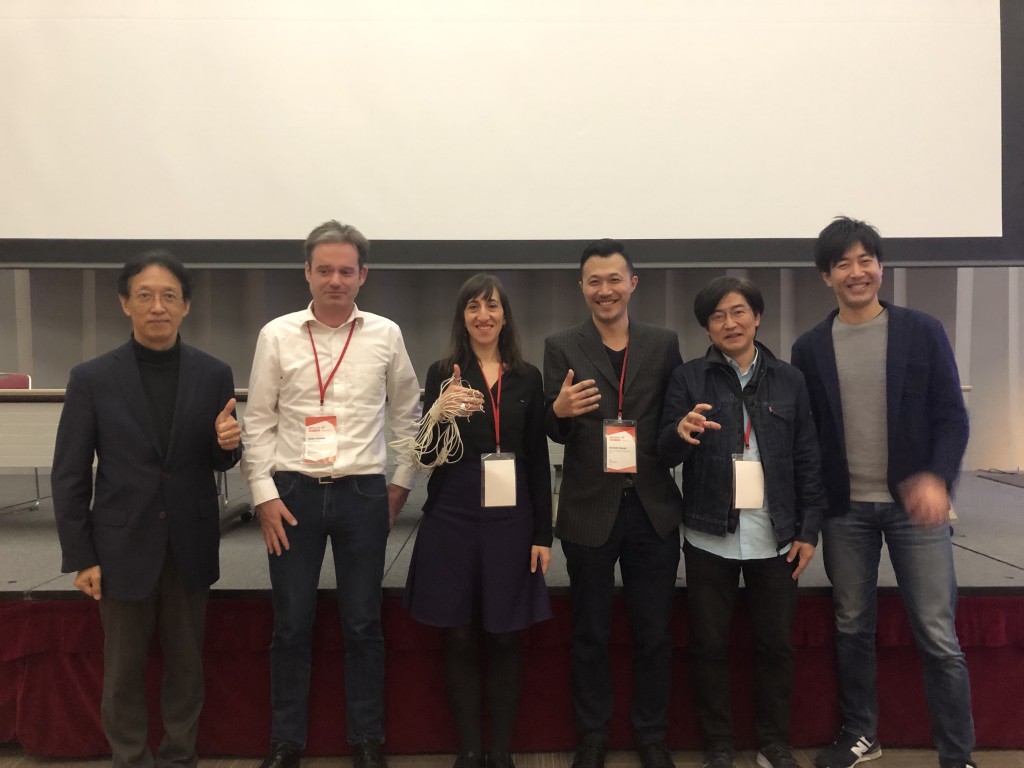
- During this past winter break 2018-2019, Maria had the opportunity to engage with the public in her hometown Madrid and talk about her research. Maria went to the studios of the Spanish Radio and Television Corporation (Radio Clásica – RTVE.es) to contribute to their programme Wavelength (Longitud de Onda) again as expert in Music and Neuroscience. Maria also had a fantastic time talking about our work on brain-body interactions during music performance as an invited speaker for the Neuroencounters at the Nirakara Institute (Centre for Cognitive Science) in Madrid. Check out the broadcast of her talk in Youtube.

- Maria and her colleague and collaborator, Marinella Cappelletti, were awarded a Grant for Scientific Research from the Bial Foundation to work on brain and cognition across the life span. We will be hiring soon a couple of new lab members.
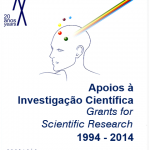
- We are developping new collaborations with industry partners for our MSc in Computational Cognitive Neuroscience at Goldsmiths. Some of the confirmed partners are Sony Computer Science Laboratory and Bayer AG.
- After a few summer months presenting at interesting conferences, working on some papers and grants, Maria is happy to announce two important news for the Autumn:
She is going to join the Centre for Cognition and Decision Making at the Higher University of Economics, Moscow, Russia, as a Research Leader Fellow (part time position in addition to her main position at Goldsmiths). There she will mainly supervise new exciting MEG projects. In addition, together with her colleague Max Garagnani from the Computing Department at Goldsmiths, we are launching the new MSc in Computational Cognitive Neuroscience at Goldsmiths.
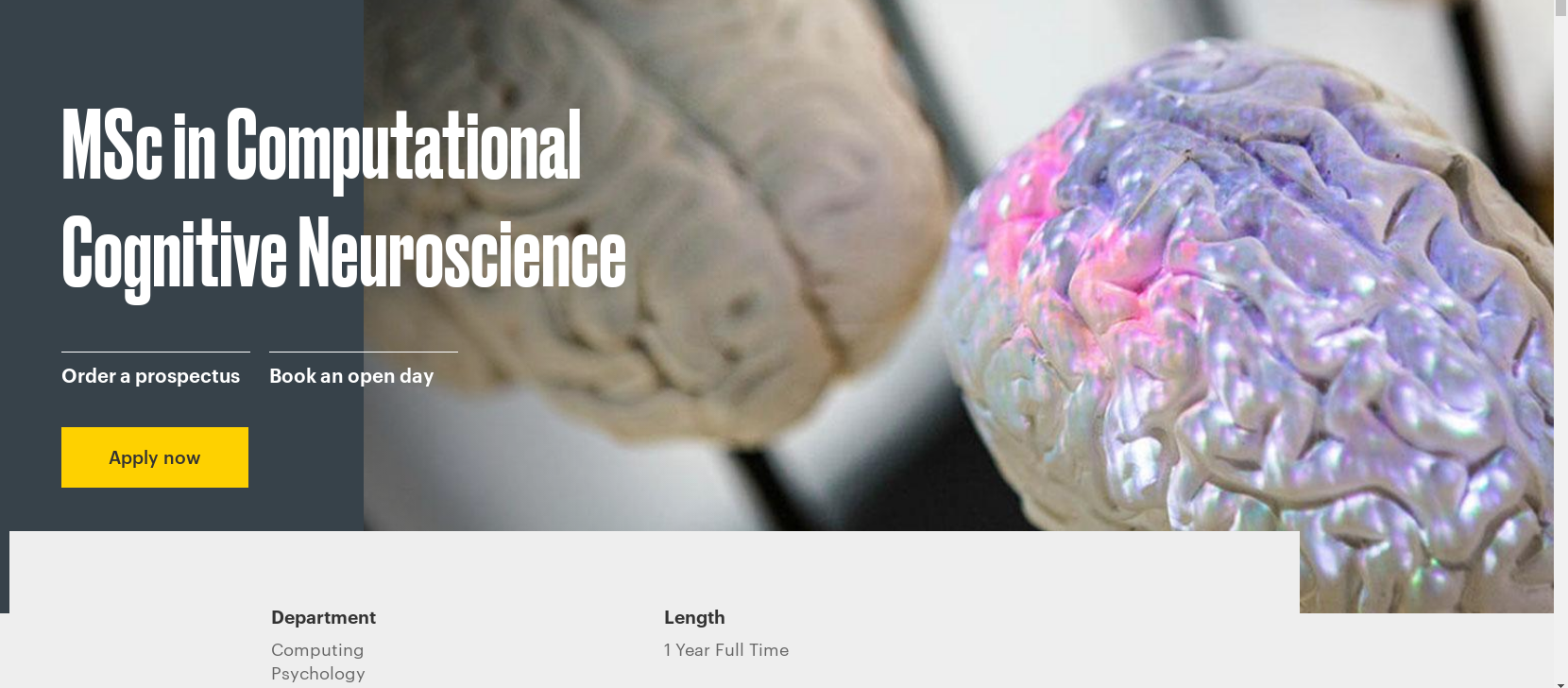
- Between March and August 2018 Maria is a visiting scientist at the Max Planck Institute for Human Cognitive and Brain Sciences in Leipzig (Germany). She will be working with different researchers, hosted by her long-term collaborator Dr. Vadim Nikulin.
- Among other upcoming talks for 2018, She is particularly happy to have been invited by the Mind, Brain and Body Institute in Berlin to give a workshop at their upcoming 6th MindBrainBody Symposium 2018. Berlin (Germany). 15-16.03.2018.
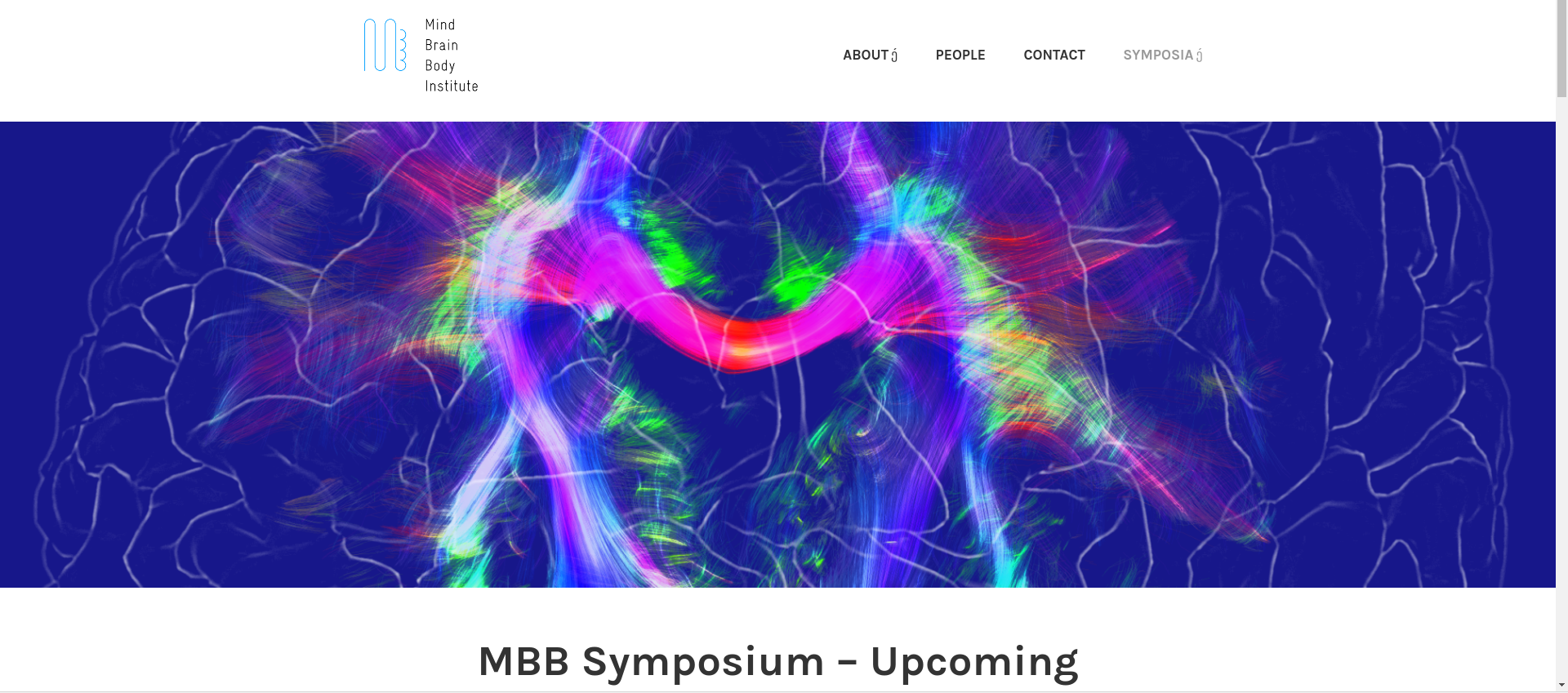
- Maria was invited to give a talk on 5th November as part of the Workshop “Active and passive methods of the brain research” at the Centre for Cognition and Decision Making of the National Research University Higher School of Economics in Moscow (Russia).
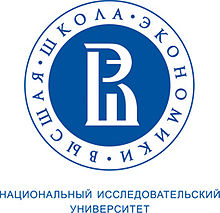
- Maria gave a talk at the I International Conference on Music Psychology and
Music Performance in Madrid (Spain). 05-07.10.17. - Maria was invited to give a workshop on neuroscience and Musical Instrument Digital Interfaces(MIDI) at the Sysmus17 – 10th International Conference, organised by Queen Mary University, London (UK). 13-15-09.17.
- In July 2017 the radio programme (Longitud de Onda) (Wavelength) of the Spanish Radio and Television Corporation (Radio Clásica – RTVE.es), which Maria contributes to, received a special commendation award in the category “Scientific Public Awareness” by “Ciencia en Acción”.
- From 27 April 2016 Maria is collaborating with the Spanish Radio and Television Corporation (Radio Clásica – RTVE.es) to contribute to their programme Wavelength (Longitud de Onda) as expert in Music and Neuroscience.
In addition to presenting topics related to Music and Neuroscience, Maria selects some of the musical pieces to be played during her contribution.
You can tune in and listen every second Thursday of each month between 11:00 and 12:00 (Spain time: GMT+2).
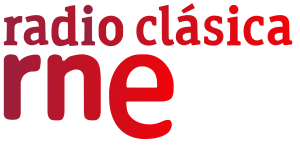

- On 27th September Maria gave an invited guest talk at the fantastic Centre for Music and the Brain, which is led by Peter Vuust, in Aarhus

- Maria co-organised with Dr. Boris Kleber the “International Symposium on Music Performance: Art and Neuroscience in Dialogue“, which took place between 29 April and 1 May 2016 in Tübingen. Funded by the Werner Reichardt Centre for Integrative Neuroscience, the Schering Stiftung and the International Brain and Research Organisation.



